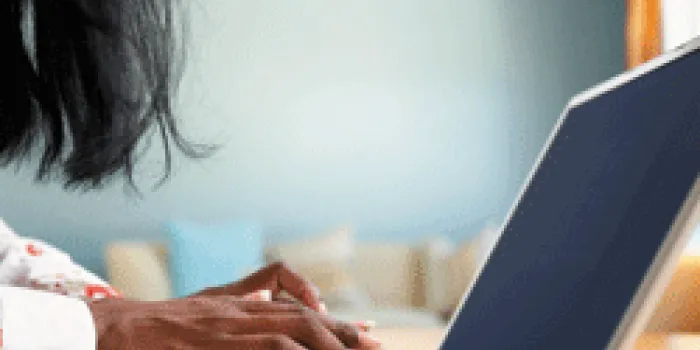For six months during 2014, representatives of 14 NHF chapters from across the country gathered virtually once a month to learn new strategies for creating and offering women’s health education programs for their members. The hour-and-a-half webinar sessions were presented by the National Hemophilia Foundation’s (NHF’s) Victory for Women with Blood Disorders initiative. They provided education and support for chapters regarding program development for girls and women, as well as facilitating sharing of best practices among chapters.
“Women have unique health needs,” says Patrice Thomas, MS, MSW, former NHF manager of education. “We want chapters to feel like they have enough knowledge that they can put together their own programs that meet the needs of their members.”
Each chapter that completed the entire webinar program received a $2,000 grant to apply toward women’s health programs. The participating chapter staff and volunteers also had access to training and resources without leaving their offices. “We wanted the opportunity to learn more about how to enhance our women’s program, learn what others are doing, strengthen our knowledge base on women’s issues and receive additional money to further strengthen our program,” says Kelly Waters, executive director of the Virginia Hemophilia Foundation in Midlothian.
Sharing and learning
Each month, as chapter staff and volunteers gathered for the women’s health webinars, they participated in unique, interactive sharing and learning with the facilitators from NHF headquarters and their peers across the country. “It wasn’t just listening,” Waters says. “We were able to ask questions and share our ideas.”
The webinars covered a variety of subjects, including how to choose topics, use community resources, and involve volunteers. They also provided information on funding educational activities, and incorporating social media to build online support and to educate and reach new audiences. For Melissa Reifke, volunteer chair of women’s programming for the Lone Star Chapter of NHF in Houston, some of the most useful topics involved working with volunteers. They are the heart of her chapter’s programs, she says. She also appreciated receiving advice for how to locate and apply for grants. “Funding is always essential for success,” she says.
Through the webinars, participants’ eyes were opened to the wide variety of programs. “It was helpful to learn more about what others were doing, such as retreats for women and girls, and educational programs for mothers and daughters,” Waters says. As a result, the Virginia chapter is polling its members to determine whether a program for mothers and daughters would be of interest.
The social media portion of the program helped participants brainstorm new ways to connect with their audiences, provide educational posts and promote upcoming educational events. “There was an excellent speaker who gave a good overview of developing a social media strategy, “ says Waters. “He really helped us think about what is a good fit for our organization and questions to ask to see if it was a good fit.” She was relieved to learn that her chapter doesn’t have to engage in every kind of social media tool. “Instead, we have to be thoughtful about what we do and ask why.”
Reifke looks forward to using the information she learned in the webinars. It will help build a stronger program that will educate and empower women who are diagnosed with or affected by a bleeding disorder, she says. “I will also utilize the connection to new people that I have met through the webinars to bounce ideas around with, and seek out advice and support.”

